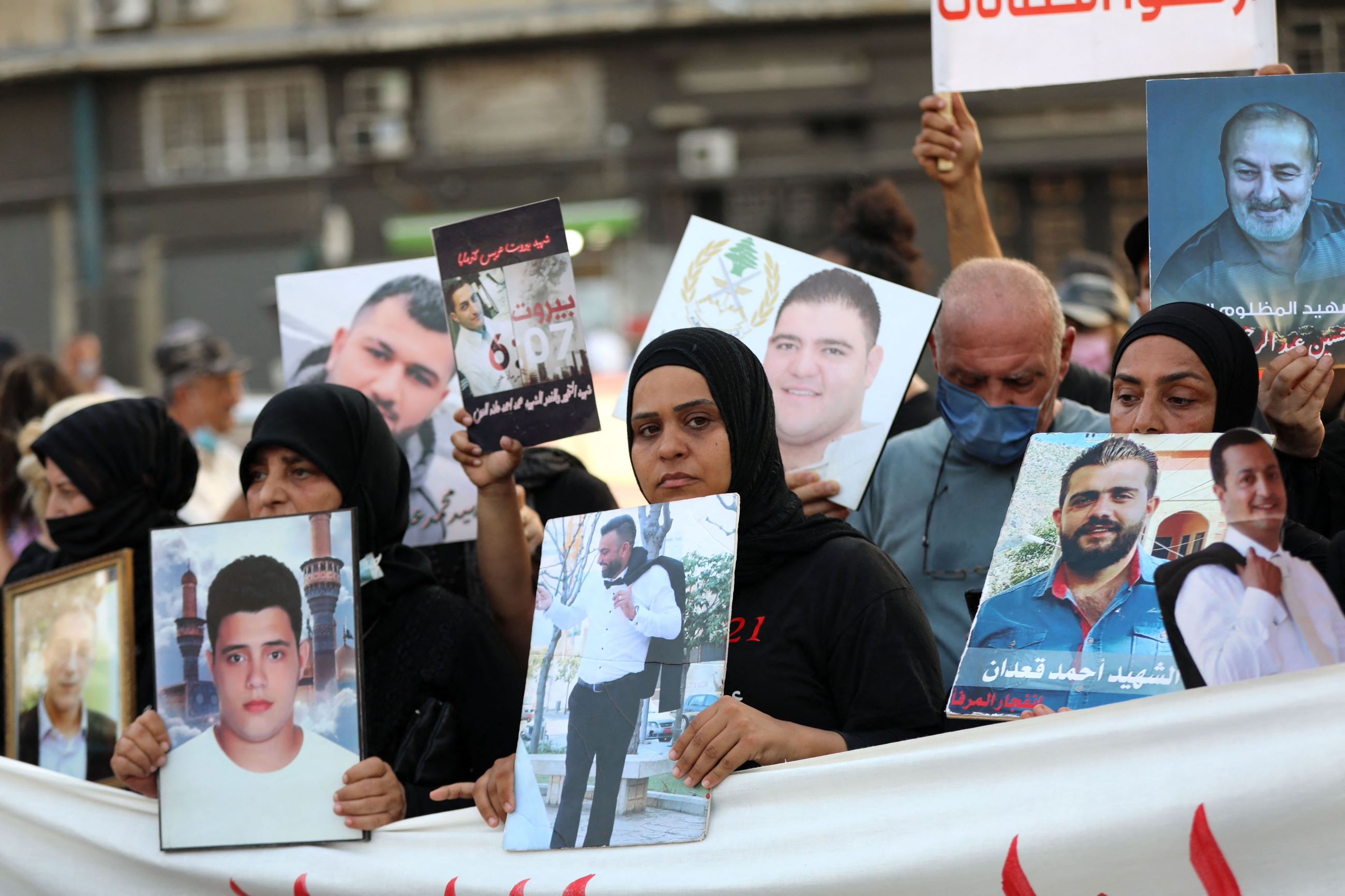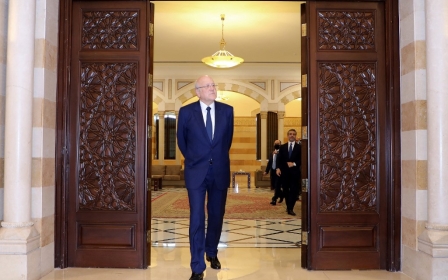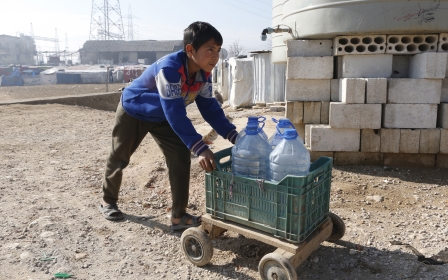More than 140 rights groups and survivors urge international probe into Beirut port blast

More than 140 human rights groups, survivors, and relatives of the victims of the Beirut port blast have called for an UN-backed international, independent, and impartial probe into the disaster.
A total of 145 signatories, including Human Rights Watch and Amnesty International, called on the UN Human Rights Council on Wednesday to establish "an international, independent and impartial investigative mission, such as a one-year fact-finding mission".
In a joint letter, the signatories argued that the domestic investigation had been repeatedly obstructed and "failed in meeting the benchmarks, based on international standards, that were laid out by the UN Special Procedures".
Wednesday's letter follows a similar one sent by 115 rights groups, survivors, and families of the victims in June 2021.
New MEE newsletter: Jerusalem Dispatch
Sign up to get the latest insights and analysis on Israel-Palestine, alongside Turkey Unpacked and other MEE newsletters
On 4 August 2020, hundreds of tonnes of ammonium nitrate caught fire causing one of the biggest non-nuclear explosions in history. The chemical compound, used both in fertilisers and in bombs, had been unsafely stored for years in Beirut's port in the heart of the city,
The blast killed at least 214 people - some of whom are still not officially accounted for in government tallies - injured some 6,500 and left 300,000 homeless, as tens of thousands of homes were severely damaged.
More than one year on, full light has yet to be shed on the circumstances that led to the explosion and which officials were aware of the risk ahead of time.
Human Rights Watch has said that evidence suggests high-level government officials were aware of the dangers represented by the 2,700 tonnes of ammonium nitrate stored in the port since 2013.
A national investigation has yet to make much progress, as MPs have stalled to vote on the investigating judge's request to lift immunity from prosecution for political figures and high-level security officials suspected in the case.
Before the explosion, Lebanon had already been suffering from a crippling economic crisis, which has since worsened to become one of the "most severe" in the world since the mid-19th century.
Long fuel lines and shortages of basic medicines now mark daily life in the country, while the Covid-19 pandemic has stifled an uprising that began in late 2019 against the country’s longstanding elite.
Middle East Eye delivers independent and unrivalled coverage and analysis of the Middle East, North Africa and beyond. To learn more about republishing this content and the associated fees, please fill out this form. More about MEE can be found here.




